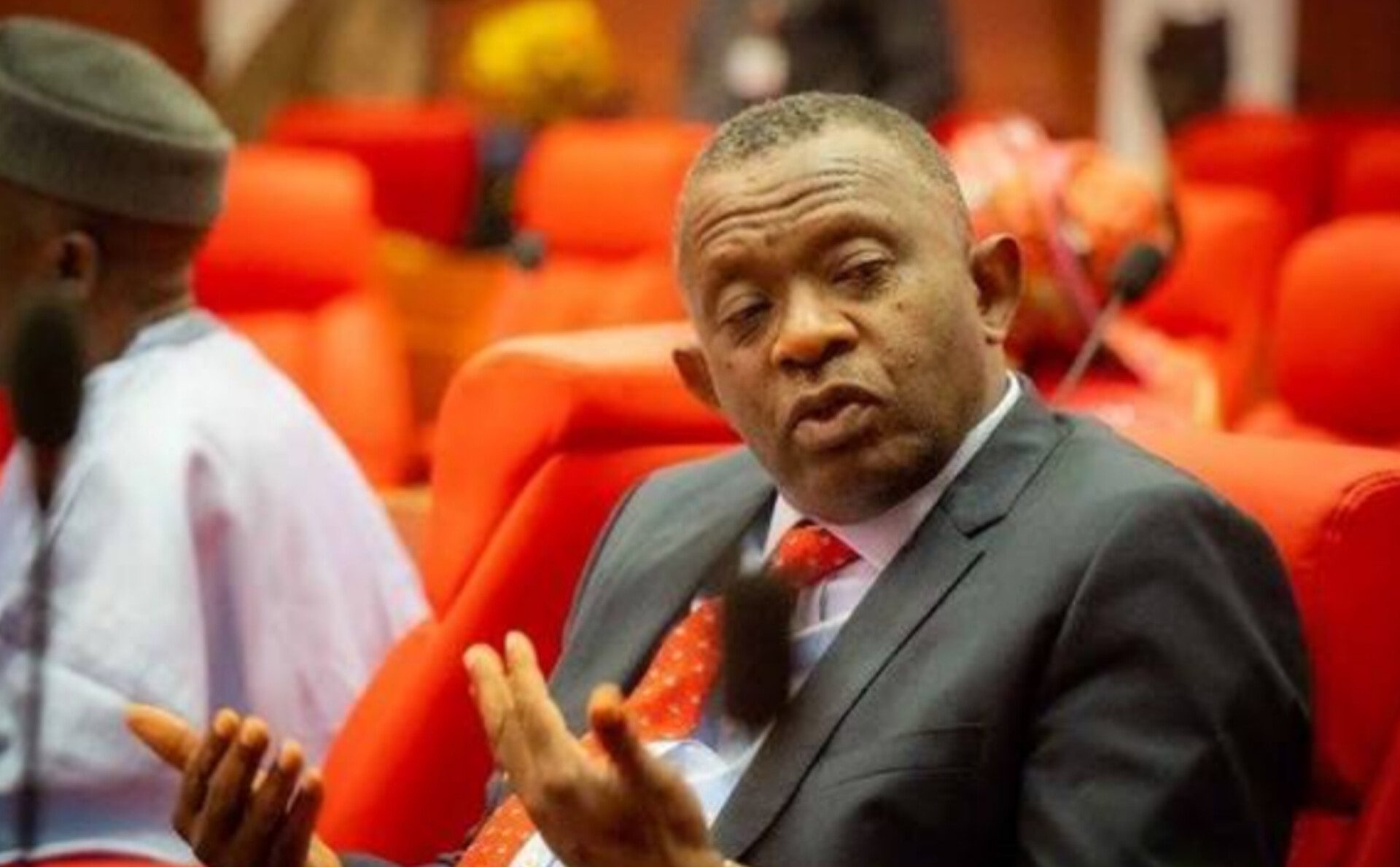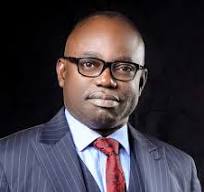By Tunde Olusunle⁹1
For his famous zeal, stamina, energy and verve, Nigeria’s former President, Olusegun Obasanjo had to learn when to draw the brakes. There were those times his spirit was willing, but his body weak. He had to succumb to the body clockwork to catch some rest. If he still desired to drag his body, he was tactfully restrained by his aides. I know a bit about Obasanjo. I served as his campaign media officer, a job I was enlisted into, even before his formal declaration to contest for the nation’s top job. He threw his hat in the ring at his famous Otta Farm, his primordial resort in Ogun State, November 1, 1998.
I had been previously introduced to him by my respected senior professional colleague and mentor, Onyema Ugochukwu. I served under Ugochukwu, beginning from the glorious days of the Yemi Ogunbiyi restoration and revolution of the Daily Times. I’ve attempted to capture my perceptions and impressions about the works and persons of Ogunbiyi and Ugochukwu, in separate, self-authored,
full length academic essays. Both have been published in reputable journals, in 2017 and 2022 respectively. I also accompanied Obasanjo to the State House, Aso Villa, Abuja and served his administration for eight years.

Obasanjo thinks, talks, eats, drinks, walks, sleeps Nigeria. Even as a presidential aspirant before he won the ticket of the Peoples’ Democratic Party, (PDP) to run for the presidency, Obasanjo’s uncommon affection for Nigeria and desire for its growth and development, was intensely unassailable. There were regular pre-campaign preparations, and campaign post-mortems. Obasanjo’s style is peculiar, but reflects his disposition towards his country and his determination to contribute selflessly to its progress. He could begin a discussion with members of his core team in his bedroom, be reminded he was running behind schedule for appointments, jump into the bath dragging his co-discussants along, and continuing the argument. The world is eagerly waiting for the memoirs of Ugochukwu and Ad’Obe Obe, both former colleagues in the now rested London-based West Africa magazine in the 1980s, who were reunited by the Obasanjo project.
During his years as president, the pathologically stubborn, somewhat nonconformist Obasanjo, found himself managed in many ways. From his chief personal physician, Olusegun Ajuwon; to the state chief of protocol, Oluwole Coker; to his aide-de-camps, Solomon Giwa-Amu and Christopher Jemitola, and chief security officer, Kayode Oduneye, Obasanjo had professional minders. Of this list, only Amu, unfortunately, is no more with us. They found ways to “ground” him from time to time, albeit for him to get power-naps. If he was proving a handful, Abdullahi Mohammed, Obasanjo’s chief of staff and former military colleague stepped forward to chaperone him away from his desk or meeting, as the case may be. Obasanjo pocketed his recalcitrant streak when the need arose, for his good and Nigeria’s benefit.
I could feel the agony of Kashim Shettima, running mate of the presidential candidate of the All Progressives Congress, (APC), Bola Tinubu, at the rally held in Minna, the other. I saw the discomfort in the faces of Abdullahi Ganduje and Adamu Abdullahi, Kano State governor, and national chairman of the APC, as Tinubu took the microphone at the Minna event. As has become famous with Tinubu, he floundered in grand style while reciting what was easily the simplest preamble to a muslim prayer! Public revulsion was spontaneously manifested by loud murmurs and grumbling as Tinubu called Allah (father) in his prefatory chants! This in Islam, is an act of polytheism, a condemnable and actionable act.
Within seventeen minutes, Tinubu was spirited away from the rally. Bayo Onanuga his campaign media adviser, would subsequently issue a statement to the effect that his principal was overwhelmed by the mammoth numbers at the rally and had to rush off for other engagements. It emerged later, however, that a three-pronged development necessitated Tinubu’s ferrying to safety. First, the call-and-response interaction with the crowd, showed they plan to vote the APC governorship candidate, Mohammed Umar Bago, and PDP’s Atiku Abubakar, at the presidential polls. Secondly, purported security reports indicated there was a plan to attack Tinubu at the end of the rally, for the heresy he committed against Allah in his earlier remarks. The third reason was connected to the urgent imperative to manage a pressing health situation related to him.
The Minna fiasco was not Tinubu’s first public stutter, even before the blast of the starter’s shot for the commencement of the presidential campaign. If we were circumspect, Tinubu’s foibles began to manifest years ago. And we should have known he was disaster waiting to unravel. At a colloquium commemorating his 69th birthday last year, he proferred that the federal government should recruit 50 million youths to enhance national security. He assured they will be fed on “cassava, agbado (maize) and yam.” Tinubu’s media adviser, my longstanding friend and brother since several decades back in our university days, Tunde Rahman, had the unpleasant task of issuing a rejoinder. Rahman was called to work shortly after again, when he had to clean up Tinubu’s gaffe while advising a group which visited him, to renew their expired permanent voter’s cards, (PVCs)! At a November 26, 2022 meeting with his supporters in Lagos, Tinubu admonished them to get their APVs in place of PVCs!!
It has indeed become “one day, one goof” for him on the campaign trail. The audience was bemused last October, when Tinubu at the Seventh Edition of the Kaduna Economic and Investment Summit, (KADInvest), serenaded Nasir El-Rufai, governor of Kaduna State, a miracle worker. He described him as an administrator who can change “a rotten situation to a bad one!” He wrongfully referred to the director-general of his campaign organisation and Plateau State governor, Simon Lalong, as Simon Dalong. His response to a question about climate change, elicited a most inconceivable, off-tangent response from him. His answer that it “is a question of how do you prevent a church rat eating a poisoned holy communion!” Weeks ago in Imo State, Tinubu struggled with the word “hullabaloo,” representing it as Bala Blu, Blu, Bulaba! Skits and memes of that outing have been variously represented in the social media. Such has been the manifestly worrying carriage and presentation of the APC presidential candidate.
One doesn’t want to play back Tinubu’s outing at the APC presidential primaries in June. Cameras trailed on him beginning from when he was disembarking from the VIP cubicle, showed him missing his steps and almost tripping down the stairs as he alighted from that reserved section of Eagle Square. The lenses were also beamed on him as he struggled with trembling fingers to flip over the sheets of the prepared speech he read at the event. You wonder if anyone has to go through such regular public torture and humiliation, if it is truly all about altruism and service to fatherland. You truly wonder if this obsessive nightmare will ever end.
Tinubu urgently needs help, he has to be restrained in spite of himself. Videos of the president of South Sudan, Salva Kiir Mayardit peeing on himself in public, made the global rounds recently. That is bad advertisement for leaders who want to die “executive deaths” in office. What has become very clear is that Tinubu’s chaperones are confirmed wayo people. They are intent on selling to us, “by force, by fire” as pentecostals will say, a holistically defective product. It is worse than a junk tokunbo contraption, which people up north describe as gura-gura.
But they keep advertising this ware in a glazed, air-conditioned showroom to the rest of us, as a new one, or chassis in “mechanic village” lingo. The product keeps malfunctioning and breaking down, while the marketers keep patching it up and panel-beating it. And they keep thrusting it in the faces of buyers whom they consciously want to fleece, as a tear rubber, a straight-from-the-dealer’s brand new product! The reckoning is that we probably have no choice since the ruling party is intent on reincarnation and self-succession. And this exactly is where they get it wrong. Has anyone pondered about why, since the flag-off of the Tinubu campaign in Jos, many weeks ago, outgoing president Muhammadu Buhari has not attended or appeared at any political event with Tinubu? Obasanjo held up Umaru Yar’Adua’s hands at rally after rally, advertising him to Nigerians. Is Buhari’s noticeable non-identification with Tinubu’s campaign strictly for official engagements across the world? Is it because he knows something we don’t know?
In an effort to placate the greater majority of us who are implacably displeased with his below par performance in his near eight years in office, Buhari seems intent on redeeming himself, somewhat. He has advised Nigerians to vote whoever they want, from whichever political party. He is promising that people’s votes must count and government must be seen to be respecting the people. Buhari finally clocked 80 years recently. He was senior to the Ibrahim Babangida/Aliyu Gusau generation in the military academy, but junior to them biologically. He desires to be on the acquittal side of history. The Independent National Electoral Commission, (INEC), has promised to deliver a BVAS-inspired, manipulation-proof election. If this is followed to the letter, Tinubu and his orchestra will be in their own townhall of balablu, blublu, bulaba, come February 25, 2023. The rest of us will be readying for the resetting and reclamation of Nigeria, come May 29, 2023, courtesy of our informed choices.
Tunde Olusunle, PhD, is Special Adviser, Media and Publicity, to Atiku Abubakar, GCON, presidential candidate of the Peoples’ Democratic Party, (PDP).



